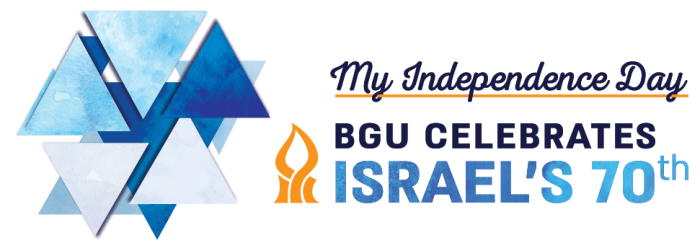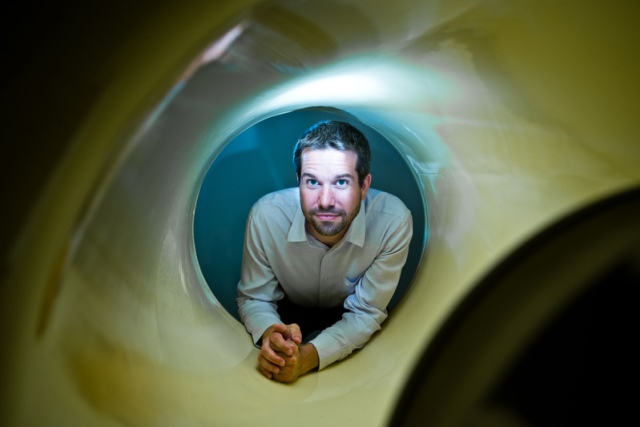
Prof. Ilan Dinstein
Department of Psychology and Head of the Negev Autism Center

This year I was promoted to associate professor at the same university where my father was also a professor. During earlier stages of my life, I would never have imagined that I would follow in my father's footsteps this way, but it happened. And I'm happy. It's a great privilege to be the second generation in the 'family business'.
I'm happy because I feel that I have the best job in the world. Dad made the right choice. The combination of autonomy, academic freedom, and employment security is unbeatable. Between you and me, it's a bit strange that professors don't smile more and complain less.
So what can we do with all this good? Try to pass it on.
In recent years, I discovered that university professors have considerably more power than I initially thought. It turns out that we are taken seriously beyond the campus walls, and this enables us to influence important processes outside the academia. In my personal story, the opportunity arose through research that my colleagues and I perform on the subject of autism.
In my lab in the Department of Psychology, together with a group of wonderful students, we study the function and structure of the brain in children who have been diagnosed with autism. We want to understand why certain children develop autism while others do not, what the brain processes that cause autism are, and how they can be influenced. In order to properly carry out this work, it's necessary to collaborate with a variety of physicians and researchers from other disciplines, including psychiatry, neurology, genetics, molecular biology and biomedical engineering. Luckily for me, soon after I came to BGU, I found Dr. Gal Meiri, a child psychiatrist from Soroka University Medical Center; Idan Menashe, an epidemiologist and geneticist; and Hava Golan, a physiologist and cell biologist. The connection was instant. It's true what they say, people in the Negev are nicer.
Together, we have been working on different research projects in the field of autism for nearly five years. During this period, our partnership has grown stronger, we have become friends, raised money, built a variety of shared facilities, and today we have the largest autism database in the country, which includes information from over 500 children with autism and their family members. Last year, we even established a formal research center, the Negev Autism Center, with the help of many exceptional partners at BGU and Soroka.
In parallel with this scientific growth, something else happened which was probably even more important. Through the partnership with Gal and other doctors at Soroka, I was exposed to the great difficulties that children with autism and their families have to endure. The shortage of clinicians and treatment facilities in the Negev is extreme, which means that families have to wait extended periods of time for diagnosis and treatment or travel long distances to receive it elsewhere. This is particularly difficult to accept when considering that early intervention is extremely important for improving prognosis – the early years of autism intervention are critical.
To try to change this problematic situation, we have developed a plan to build an Autism Center that will combine both clinical treatment and scientific research under one roof. A center that will include the physical infrastructure and organizational framework for dozens of therapists who will work with hundreds of children. This year we began discussing this plan with the University administration and the Beer-Sheva municipality. Fortunately, both institutions are headed by wonderful leaders who have an open, creative mind, real Ben-Gurion Zionism, and an affinity for this topic. The road is still long and I imagine that it will not be easy. The plan will probably change several times and the outcome may not be as glamorous as initially planned, but on Israel's 70th Independence Day I am full of optimism that we will succeed in making a real difference in the Negev and that Beer-Sheva will eventually become a source of pride for both clinical and research excellence in the field of autism.
Read about other BGU faculty, alumni and honorees describing significant moments in their lives, linking them to the nation's history >>>>